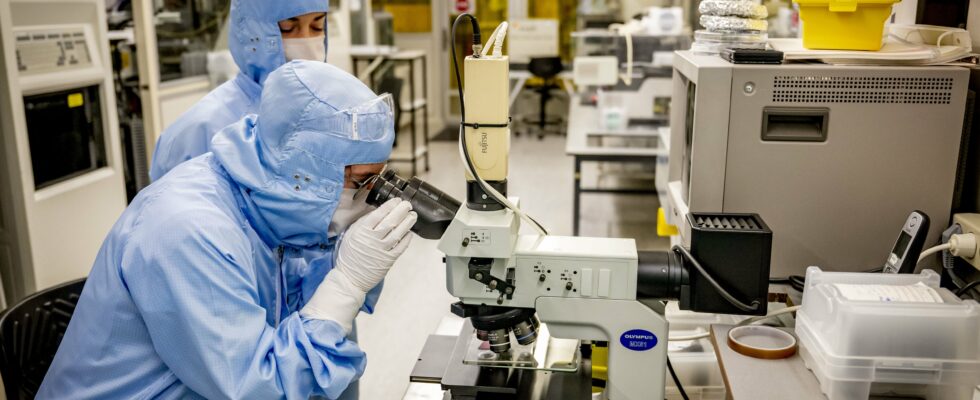The most feared bank in the world can also fail miserably. In February 2023, Goldman Sachs communicated to its large clients a list of ten companies threatened by artificial intelligence (AI). Among them, the British publisher RELX. The “Firm” was worried that its content would be plundered by ChatGPT and others, and its economic model destroyed. Diagnostic error! A few weeks later, the London-based group presented to financial analysts its Lexis + AI conversational robot intended for lawyers, and demonstrated through A + B that AI, far from being a handicap, helped it to strengthen its offers. RELX stock price has jumped 30% since Goldman Sachs’ warning… which, in the meantime, revised his judgment.
The English publisher, whose offering ranges from risk analysis solutions to scientific journals like The Lancet Or cellincluding software for lawyers, weighs the equivalent of 80 billion euros on the London Stock Exchange. More than BNP Paribas or Axa! Its share price has outperformed the Footsie 100, the index of the 100 largest British companies, in 12 of the last 13 years. And AI has only accelerated its rise. “RELX products using AI are sold 15% to 20% more expensive than its other solutions,” explains financial analyst Konrad Zomer of broker Oddo BHF, who has followed the stock for almost twenty years.. Despite this additional cost, clients are migrating to these applications which save them a lot of working hours.” In addition to the Lexis + AI solution, which helps lawyers analyze legal documentation, RELX has launched Scopus AI, a search engine for researchers, and Clinical Key AI, a chatbot for the medical world.
Save time for lawyers
The group’s first and most dynamic activity (one-third of revenues), risk management, provides information to help a company determine whether or not it should extend credit or insurance to an individual. AI provides invaluable assistance by collecting and analyzing large amounts of data. In the case of housing insurance, for example, the RELX tool “digests” 200 parameters including the characteristics of the house, the history of claims and satellite images – these making it possible to observe the state of the property. the roof or the risk posed by surrounding trees.
The conversational robot developed by RELX for legal professionals also offers considerable time savings. Its legal database is enriched by 2.2 million pages per day. The algorithm dissects each judgment, press release or case law. The company assures that its model, unlike those of mainstream LLMs like ChatGPT, is not subject to “conceptual or factual hallucinations”.
“Take a divorce law firm based in Florida. If a separation in Philadelphia results in an unusual case law or decision, the RELX tool will send them a notification”, explains Konrad Zomer. Enough to make legal monitoring much more effective.
Spotting future Nobel Prize winners
But it is in its scientific publishing business that RELX could find the most fascinating uses of AI. With nearly 3,000 journals including cell And The Lancetthe company sees many benefits in machine learning. Starting with editing, translation, summarizing articles, and the fight against plagiarism. In the longer term, peer review, which contributes to the prestige of journals but requires a lot of free time from researchers for little recognition, could be assisted or even replaced by the machine. “Such a scenario obviously raises a lot of reluctance in the scientific world, but it is entirely possible,” underlines an expert in the sector.
Algorithms could allow journals to track doctoral theses and spot future Nobel Prize winners. “The reputation of a magazine also depends on its signatures,” continues the specialist. RELX could also sell its intelligence to States, keen to direct their aid to the most promising research projects, and to companies and investors, to direct their R&D in the most profitable segments. In short, great prospects which justify a stratospheric stock market valuation, more than 7 years of turnover. It must be said that, in these studies and scholarly articles, tomorrow’s innovations are hidden… This is the paradox of academic publishing: it only weighs a few billion euros per year, but its underlying value is huge. Goldman Sachs, this time, has understood it well!
.
